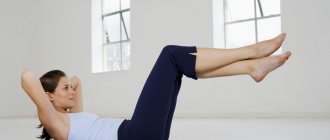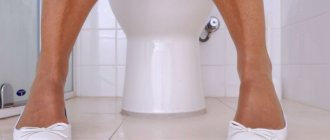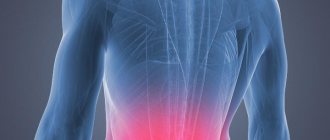With the arrival of cold weather, the risk of developing cystitis increases. More often, pathology is diagnosed in women, less often in men, which is associated with anatomical differences in the genitourinary systems.
Frequent visits to the toilet, cramps and pain in the lower abdomen, elevated body temperature and other symptoms negatively affect not only health, but also lead to depression. With such discomfort, it is difficult to maintain the usual rhythm of life. If before the illness a person led an active lifestyle, then the question will certainly arise: is it possible to play sports with cystitis?
Is it possible to play sports in case of cystitis or pyelonephritis?
Traditionally, cystitis is considered predominantly a female disease, which causes significant discomfort and dangerous consequences. And since physical exercise is an essential element in the life of most representatives of the fair sex, today we will talk about whether women with cystitis can play sports.
Doctors do not prohibit patients with cystitis or pyelonephritis from playing sports, but they do impose some restrictions on certain types of exercise. Before buying a gym membership, consult a urologist or nephrologist about the possible consequences and contraindications to sports.
Sports depending on the stage of the disease
Cystitis and pyelonephritis are of two types: acute and chronic. The following signs are characteristic of the acute stage of diseases of the urinary system:
- burning and discomfort in the lower abdomen;
- pain and heaviness in the lumbar region;
- painful and frequent urination, often mixed with blood;
- elevated temperature.
If you have these symptoms, that is, the disease is in an acute stage, then playing sports should be postponed until the condition improves. During this period, bed rest is recommended, since the body will need strength to recover.
Exercises for cystitis
With the right treatment, relief from the symptoms of cystitis occurs within 2-3 days. As soon as the pain decreases, physical activity is allowed, provided that the intensity of training and the number of repetitions are reduced.
The acute stage of the disease is characterized by a period of relapse and remission. Relapse is an exacerbation, which is characterized by the symptoms of acute cystitis. For this reason, you should avoid sports activities, especially if your sport involves strength exercises - barbells, dumbbells.
In case of relapse, you can practice yoga and meditation. There are also various methods of physical therapy. Such exercises improve blood supply to the bladder, which leads to increased efforts to combat pathogenic microflora.
Loads during pyelonephritis
The disease often occurs as a complication of cystitis. Doctors say that playing sports for pyelonephritis has a preventive and therapeutic purpose. Strength and intense training should be excluded from physical activity.
With exacerbation of pyelonephritis and relapses, any sports exercises are prohibited. Pyelonephritis is usually characterized by high fever and poor health. Most often it is treated in a hospital setting.
If you are in remission, then exercise, walking and cycling are allowed. Just do not forget about a sense of proportion; it is not recommended to set Olympic records with such a disease.
When to stop playing sports
If initially there were no contraindications for playing sports, but during the activity your health worsened, you need to inform your urologist. Alarm signals that serve as grounds for stopping training:
- The body temperature suddenly increased - directly during sports or immediately after completing them.
- After a block of several exercises, the urge to urinate occurs.
- The training ends with chills and deterioration of health, not associated with fatigue.
- There is a sensation of hot air inside the urethra.
- The urine is cloudy or even blood-colored (the color of meat slop).
- Pain appeared in the suprapubic region, aches in the lower back, sacrum, which was not associated with the nature of the training.
- After exercise, you have to recover for a long time due to general discomfort not associated with power load.
- During intimate intimacy, acute pain occurs in the urogenital tract.
- Discharge from the genital tract appears - cheesy or purulent in nature, thick consistency, with a pungent odor.
- Touching the kidney area causes unbearable, girdle pain.
- There was a feeling of intoxication in the body - nausea, lack of appetite.
Any of the listed symptoms indicates an exacerbation of cystitis, which suggests contacting a urologist. Before visiting a doctor, it is not recommended to use heat sources - applying a heating pad, taking a bath with hot water. The use of any medications is contraindicated (with the exception of No-shpa, an antispasmodic that helps eliminate pain).
When visiting a doctor, you need to prepare for repeated diagnostic procedures and, possibly, correction of the previously prescribed therapeutic program. Deterioration in health when playing sports due to cystitis is grounds for temporarily stopping training. In 9 out of 10 cases, the urologist prescribes bed rest for such patients.
Allowed sports
Sports for cystitis will only be beneficial if you follow all medical instructions. Urologists recommend that their patients pay attention to those sports that do not require excessive activity and strength. So, during chronic cystitis or pyelonephritis, women can do:
- dancing;
- aerobics and fitness (gently);
- yoga;
- volleyball;
- walking;
- Nordic walking;
- easy jogging.
Doctors say that playing sports with chronic cystitis is possible and necessary. Gymnastics is suitable for these purposes. Useful exercises “Bicycle” and “Scissors” will not harm the body and will help maintain your figure during illness. Women are also recommended to engage in a physical therapy program, which your doctor will help you choose.
Physiotherapy
Typically, exercise therapy for cystitis or pyelonephritis consists of three stages:
- Prepare for major physical activity with breathing exercises and warm-up walking.
- The main load lasting for 30 minutes. Exercises are performed standing or lying down. The chest, sides and abdomen are exposed to physical activity.
- A period of rest and complete relaxation. Breathing exercises are performed for 5 minutes.
Playing sports can also cause harm to the body. Hypothermia can aggravate the disease, so exclude swimming and figure skating from your training. As for swimming, doctors do not prohibit swimming in warm water or a heated pool where the water temperature exceeds 30 degrees. Prolonged swimming in cold water can aggravate existing cystitis and lead to complications.
Recommendations for classes
Is it possible to play sports with cystitis and pyelonephritis? Of course it is possible, but only during the period of remission and not too actively. Urologists recommend following the following rules:
- Give yourself enough time to practice, as systematicity is important for successful training.
- Carefully alternate tension with rest to avoid overexertion.
- Follow your breathing technique.
- Don't rush to set records right away. The intensity of exercise should increase gradually.
During physical activity, pain in the bladder or kidneys and discomfort may occur. In this case, it is recommended to exclude sports from your life for a while and make an appointment with a doctor.
Experts also advise recording blood pressure, pulse and weight readings after exercise. This will help the doctor monitor your condition. Don’t forget to visit your urologist’s office to monitor the progress of your recovery.
Exercise therapy and gymnastics for cystitis
During an exacerbation, which lasts 7-10 days, the patient is recommended to rest completely. Lack of stress has a positive effect on the bladder and helps eliminate inflammation. Restrictions are gradually being lifted.
To speed up recovery and prevent relapses of the disease, a course of exercise therapy is prescribed. The first classes are supervised by a specialist. Physical therapy (physical therapy) for cystitis excludes aggressive exercises. Priority is given to gentle stretching movements to improve blood circulation.
The mechanisms of therapeutic action are as follows:
- With a gentle effect on muscle tissue, blood flow increases. Necessary elements and oxygen are delivered to the bladder area by hematogenous route.
- Adequate nutrition accelerates the regeneration of cells damaged by inflammation, activates the production of immune agents that absorb the remains of bacteria and infections.
- Regular gymnastic exercises to strengthen the pelvic floor muscles restore and strengthen local immunity, preventing relapses of cystitis.
Gymnastics and exercise therapy do not have the disadvantages inherent in strength sports. It is impossible to injure the bladder during stretching exercises, and the benefits from non-aggressive exercises are greater than from cycling, swimming, etc.
It is not recommended to exercise during cystitis. During the recovery period, it will be useful to attend exercise therapy and perform gymnastic exercises. Classes in a group or at home are suitable. During the rehabilitation period, the following have proven themselves well: Kegel gymnastics, yoga, wushu, and race walking.
There are several popular and effective types of exercises for the prevention of cystitis:
- According to Kegel, the essence of the technique comes down to relaxation and tension of the muscles in the pelvic area. Initially, gymnastics was used exclusively for women, but later it began to be used for men. A classic set of therapeutic exercises for the pelvic muscles was invented by the gynecologist Kegel to help women in the pre- and postpartum period. There are about 10 basic methods of execution. One of the simple and effective exercises:
- the perineal muscles are tensed as if holding back urination for 3-10 seconds;
the next period of relaxation lasts the same time;
- 10-15 approaches are required at one time;
- periods of tension are gradually increased and brought to 60-90 seconds.
- Breathing exercises are aimed at saturating the blood with oxygen and increasing microcirculation in the genitourinary system and the body as a whole. Regular exercises have a positive effect even in the case of patients with chronic forms of inflammation, accompanied by extensive congestion in the pelvic area. Strelnikova’s health-improving breathing exercises will help with frequent relapses of cystitis: it will strengthen the body’s protective reactions and restore the functions of the bladder in full. The Buteyko method works in a similar way. Breathing exercises are especially popular in old age. Regular exercise increases vitality, improves mood and has a psychosomatic effect.
- Exercise therapy - simple exercises showed good results: “scissors”, “bicycle”. Fans of active sports can be encouraged to engage in fitness and yoga. For severe destructive disorders, Pilates is suitable.
Kegel exercises to strengthen the bladder walls can be performed at home or in the office. Despite the ease of use, the technique has proven its effectiveness for gynecological and urological problems.
Acceptable and recommended physical exercises (Kegel, breathing exercises, yoga, fitness) help against cystitis. Classes begin after the end of antibacterial therapy during the rehabilitation period.
Prohibited loads and contraindications
Cystitis occurs more often in women than in men. Even professional athletes who compete in winter sports and swimmers are susceptible to the disease. Based on this, doctors have identified contraindications for training in certain sports:
- Exercises in the pool are only recommended when the water temperature is above 30 degrees. If this condition is not met, then the duration of the workout should not exceed 20 minutes, otherwise it may threaten a recurrence of cystitis. If the temperature is above 30 degrees, then you can swim without time restrictions. Swimming is strictly prohibited if the disease has acquired an acute or chronic form. For the same reason, ice skating and ice hockey are prohibited.
- Vigorous aerobic exercise can make your health worse. Too much strain causes mechanical damage to the bladder walls. Therefore, give preference to calmer workouts or reduce your pace.
- You should also avoid heavy physical activity. When working out in the gym, as well as when boxing or wrestling, there is a risk of increased intra-abdominal pressure, which can cause certain complications.
Is it possible to play sports with cystitis?
Doctors use the medical term cystitis to define an inflammatory process that affects the entire wall or only the mucous membrane of the bladder. The disease progresses not only causing the patient discomfort and changing his usual rhythm of life, but also causing the development of further health problems. That is why people who are accustomed to regular physical activity, and especially athletes, are interested in whether it is possible to play sports with cystitis.
Allowed or prohibited
Cystitis is a disease in which the bladder (the walls as a whole or the mucous membrane individually) is affected by inflammation, which is accompanied by disturbances in the healthy process of urination, fever, and swelling. Every visit to the toilet becomes a painful ordeal, and the need for this becomes more and more frequent, since an inflamed bladder reacts to even a small amount of accumulated urine as if it is full.
In the absence of timely treatment, cystitis progresses quite quickly, inflammation spreads to other organs of the urinary system, so at the first sign the patient should consult a doctor. It is also extremely important to follow all treatment recommendations, including following a diet, keeping the body warm, and most importantly, avoiding active physical exercise. But not all - the list of permitted sports includes:
The attending physician may allow patients to engage in the listed types of physical activity in the gym and at home, since such activities have a positive effect on the entire body, improve blood supply to internal organs, thereby leading to a powerful filling of tissues with oxygen and nutrients.
Permitted sports help speed up the drug treatment of inflammation and stimulate the removal of pathogenic microflora from the body.
Yoga gives the best results - when performing exercises, an abundant blood supply to the pelvic organs is provoked, and the rush of blood to the bladder affects the process of active removal of waste products from the body, as well as bacteria and their metabolic products. Yoga helps eliminate foci of inflammation, restore healthy cellular nutrition and regeneration, due to which the consequences of the disease will be quickly neutralized.
A man or woman who is faced with the problem of cystitis, but is not too interested in various sports, should still engage in physical activity. At a minimum, you need to perform simple exercises - “bicycle”, “scissors”, squats, and also train by taking long walks, which also stimulate blood supply to the pelvic organs.
As for prohibited sports activities, patients will have to give up the following types of activity:
- swimming in open waters,
- figure skating,
- biathlon,
- snowboarding,
- skiing,
- martial arts.
Activities that are carried out in conditions of low air temperature or in cold water, as well as exercises that require using physical capabilities to the limit, are prohibited.
Swimming is also not recommended because in open water there is a danger of secondary infection of the urinary tract or inflammation of the urethra or even the kidneys joining the underlying pathology.
You should exercise with caution when you have cystitis - low temperatures lead to slow blood flow and poor blood supply to internal organs, which is why tissues do not receive enough oxygen and beneficial microelements, and metabolic products are not eliminated from the body. This leads to a deterioration in the patient’s condition, a slowdown in therapy, as well as complications in the form of ruptures of bladder tissue and the formation of ulcers, erosions, and necrosis.
Not all physical activity is equally beneficial
Physical activity has a major impact, both positive and negative, on the course of the disease. Useful sports:
- provide increased blood supply to the bladder, due to which the organ works more intensively, actively removing pathogenic microorganisms from the body along with urine,
- produce an analgesic effect, easing the course of the acute form of the disease, relieving muscle spasms,
- enhance the effect of medications, accelerating the treatment of cystitis,
- strengthen the immune system, strengthening the body's defenses and stimulating them to fight infectious microflora.
Sports that doctors call dangerous for patients with cystitis lead to the following consequences:
- complications of inflammation with the spread of foci to other parts of the urinary system,
- constant relapses of the disease,
- delayed treatment of cystitis with long-term persistence of poor health in the patient,
- formation of ruptures, ulcers, erosions, necrotic areas in the walls of the bladder,
- the likelihood of concomitant infections.
There are no prohibitions for physical activity during cystitis - only certain sports that do not help alleviate the condition, but cause even more harm to the patient, can be prohibited.
Contraindications for physical activity
There is no consensus on playing sports during exacerbation of cystitis. In a specific situation, the urologist and the patient, having discussed all the nuances of the condition, make a joint decision.
In any case, it is necessary to limit physical activity, even if the disease occurs without severe pain or other unpleasant symptoms.
In case of severe pathology, accompanied by an increase in temperature and the appearance of blood in the urine, any exercise is completely prohibited.
With cystitis, harm will come from sports where the main load falls on the muscles of the abdominal wall.
This is explained by the fact that the bladder is located in the lower abdomen, and all physical exercises that use the muscles in this area automatically put pressure on the organ.
When wondering whether it is possible to play sports when the period of exacerbation of cystitis has passed, it is worth considering that pathology often occurs due to hypothermia.
Therefore, it is better to completely exclude all sports associated with cold, even after complete recovery.
Weightlifting and any strength sport requires tensing the abdominal muscles. They also increase intra-abdominal pressure, which can lead to bleeding.
In addition to the power loads themselves, the special form for exercise has a negative impact. It tightens the body excessively, impairs blood circulation and interferes with proper breathing.
You need to increase the load gradually. Classes should begin no earlier than a week after the acute pathology has been cured. In general, it takes about 2 months to restore the functionality of the bladder.
Sports and chronic cystitis
The course of inflammation of the bladder walls goes through two stages - exacerbation and remission. During the period of relapses and exacerbations, physical activity is strictly contraindicated for patients, especially activities that require significant effort (strength sports, abdominal exercises, long running). All permitted activities should be carried out only during the period of remission - the disappearance of noticeable symptoms of the disease. At the same time, doctors recommend doing yoga exercises both during the period of relapse and while the disease is receding - the effect of the “procedures” will help speed up the relief from inflammation, as well as produce an analgesic effect.
Loads for chronic cystitis
This form of the disease is characterized by two stages: exacerbation and remission.
- In the first case, any physical activity, especially strength, is contraindicated. When acute symptoms subside, it is not recommended to perform exercises involving tension in the abdominal muscles. There is compression of the bladder, which is still inflamed.
- Gentle exercises upon the onset of remission have a positive effect. They ensure that the circulating blood delivers antibodies, nutrients necessary for the restoration of the affected organ.
When sports is necessary
Experts have developed special physical therapy to help cope with the manifestations of cystitis both during exacerbations and during remission. The following techniques are recommended:
- Sit on a chair, press your hands to your body. As you inhale and exhale, help lower your chest with one hand, and squeeze your stomach with the other. Repeat – 5-10 times.
- Sit up straight, put your hands on your hips, then spread them, while bending slightly at the waist. Repeat – 4-8 times.
- Place one foot on a chair and place the other firmly on the floor. Place your hand on your thigh and try to bend your knee while leaning forward at the same time. Repeat – 6-8 times for each leg.
- Stand up straight, press your hands to your sides. Begin to tilt your body left and right, allowing your arms to slide along your body. Each tilt – 5-7 times.
- Lie on your back, while inhaling, bend your knees, clasp them with your hands and fix the position for 3-5 seconds. Release, exhale, then repeat 10-12 times.
The greatest effect can be achieved if the procedures are performed after taking a bath (in remission) or shower (during exacerbations), in a relaxed state.
General recommendations
Sports training for cystitis can bring significant benefits, but not every sport is suitable for these purposes.
Having decided on the permitted type of activity, you should adhere to a number of recommendations, regardless of the direction of your choice:
- training should be carried out only during the period of remission;
- exercises should be done daily, otherwise they will not be beneficial;
- if you have cystitis, you need to take breaks during training and give the body rest;
- it is necessary to monitor breathing, observing all the technical features of the process;
- the number of approaches and intensity of training should be increased gradually;
- if distinct pain appears, the activity should be stopped;
- To make it easier to assess the benefits and harms of training, you need to record blood pressure, pulse, weight before, during and after exercise;
- You need to choose a uniform for training that is comfortable and does not restrict movement. The material must be natural, without synthetic additives.
Prohibited sports
Experts recommend, regardless of the causes and phases of cystitis, to exclude those physical activities that can aggravate the disease or cause a relapse during the recovery stage. These sports include:
- Swimming in cold water, winter swimming . Prolonged stay in a pool or natural body of water leads to a decrease in immunity; cystitis symptoms begin to appear within a few hours. During swimming, the water temperature should not be lower than thirty degrees Celsius. At the end of the water procedure, you need to dry yourself well with a towel and put on dry underwear.
- Winter sports . Each of them is fraught with hypothermia, leading to exacerbation of the disease. It is necessary to minimize physical activity if the air temperature is below ten degrees. Avoid sitting on cold objects and cover your lower back securely.
- Weightlifting, bodybuilding, wrestling and boxing . They cause tension in the abdominal muscles, thereby increasing pressure in the abdominal cavity. All this negatively affects the urine.
- Bike racing . Create a high load on the pelvic area. Tight, tight-fitting clothing in this sport negatively affects health by impeding blood circulation.
But it must be remembered that all this can provoke recurrent complications. The state of the immune system should be taken into account to avoid unnecessary risks.
Types of physical activity prohibited for cystitis
The list of types of directions and even exercises for cystitis should be agreed with the attending physician. Some actions performed against the background of bladder inflammation can lead to an exacerbation of the existing condition, aggravation of symptoms, and the development of complications.
Here are the sports that should be avoided if you have cystitis in any form:
- Exercises in the water. Any action that involves prolonged exposure to cool water can become a catalyst for the inflammatory process or cause its spread. This moment poses a particular danger for pregnant women.
- Winter sports. They can also cause hypothermia, which accelerates the exacerbation of the disease. If you plan to carry out any activity outdoors at low temperatures, you need to take care of reliable insulation of the legs, lumbar area and pelvic area. If signs of hypothermia appear, you should immediately go to a warm room and warm up.
- Martial arts. During such training, as a result of the work of the abdominal muscles, an excessive load is created on the pelvic organs. This leads to compression of the bladder and increased characteristic symptoms.
- Lifting weights. Another direction leading to an increase in the load on the abdominal organs affected by the disease.
In addition, you should not get too carried away with cycling and rowing.
In both cases, fluid and blood stagnation occurs in the pelvic organs, which is undesirable if you are prone to bladder inflammation.
Physical activity for acute cystitis
For the first time, pronounced symptoms characterize the beginning of the acute phase of cystitis. You can learn about the treatment of acute cystitis from our material. Significant pain can cause a condition in the body in which the ability to move normally is lost. Supplementation in the form of physical activity can not only delay the healing process, but also cause increased pain symptoms.
In this case, various activities associated with sports are prohibited during this period. You should stay warm, be at rest, and adhere to bed rest. In this mode, it is easier for the body to cope with the disease.
If you are worried that stopping sports activities for a while will lead to an increase in body weight, then simply adjust your diet by reducing the amount of fatty foods. You should eat more vegetables, berries and fruits, and drink plenty of fluids. It is important to balance your diet so that it consists of foods recommended by your urologist.
The harm and benefits of physical activity
The ability to play sports will depend on the stage of the disease. In inflammatory processes in the bladder, two stages are distinguished: acute and chronic.
For chronic
During the period of remission of the chronic stage, when symptoms weaken or disappear, moderate exercise is not prohibited.
In case of relapses (during an exacerbation), it is better to completely abandon training and observe bed rest.
In acute
The acute phase of cystitis is often accompanied by painful urination, blood in the urine and even incontinence. Given these symptoms, physical activity should be avoided. Sports designed for weight loss will also not bring health benefits during this period.
In acute cystitis, physical activity should be avoided.
In acute
Chronic cystitis and various sports
Cystitis occurring in this form is characterized by recurrent exacerbations and remission changes, characterized by weakening or complete disappearance of symptoms. If an exacerbation occurs, it is quite obvious that physical activity should be avoided. This is especially true for strength exercises.
In case of relapse, you should not strain the abdominal muscle tissue so as not to create pressure on the bladder. It is allowed to return to renewed exercise only at the time of remission. But at the same time, you should follow the trainer’s recommendations.
Acute cystitis
To maintain a beautiful figure, regular workouts are required. The appearance of signs of illness excludes this possibility.
When there is a frequent urge to urinate, severe pain is felt in the lower abdomen, droplets of blood are released in the urine, bed rest is needed, any strain is unacceptable. They can lead to a prolonged course of the disease and possible complications.
Treatment with folk remedies gives good results
The body needs strength to fight the disease. Rest, warmth, and the use of therapeutic methods of treatment and traditional medicine can alleviate the condition in 2–3 days. Then you can continue to exercise, provided that the usual load is halved.
What sport is good for bladder inflammation?
During the period of cystitis, urology specialists advise each patient to pay attention to sports exercises that do not entail significant physical overload. Dancing, aerobics, fitness, yoga, walking, and playing volleyball may be useful.
Experts in oriental medicine recommend giving preference to yoga among the permitted activities. The benefits of such gymnastics during cystitis are very obvious, because almost all exercises that are performed during yoga create the opportunity to normalize blood circulation in the pelvic area and enhance the absorption of nutritional components that have a positive effect on the urinary tract affected by the infection.
You should not intensify sports exercises during the acute phase of the disease, since you will first have to observe complete rest. Excellent results are achieved by doing gymnastic exercises. It is recommended to perform “scissors”. For this exercise, certain requirements are met:
Cystitis disease
Cystitis is an inflammatory process in the bladder that affects the mucous membrane or the thickness of the wall.
The disease is accompanied by urination problems and increased body temperature. A person who has cystitis often visits the toilet.
Urination is accompanied by a burning sensation and discomfort, and the amount of urine produced becomes scarce.
This feature is due to the fact that the inflamed wall perceives a small amount of urine as if the bladder is full.
When treating cystitis, it is recommended to avoid excessive physical activity, low temperatures and follow a diet.
A large number of people lead an active lifestyle, and the question is whether it is possible to play sports with cystitis?
The benefits of exercise for cystitis
Cystitis is an inflammatory process occurring in the bladder.
Women are more susceptible to pathology due to their physiological characteristics. When wondering whether it is possible to play your favorite sport with cystitis, it is worth considering that everything depends on the form, stage and nature of the pathology.
Minor exercises usually benefit patients, but they are resolved after relief of the main symptoms.
Cystitis and sports are completely incompatible only during the period of exacerbation of the disease, when there is pain, fever, and mucus and blood are detected in the urine.
Physical activity for cystitis in women and men improves blood circulation and metabolic processes.
Thanks to this, blood stagnation is prevented, tissues receive nutrition without hindrance, and cell regeneration is accelerated. Exercising helps strengthen the immune system, which reduces the likelihood of relapse.
Physical exercise increases the tone of the body, prevents stagnation of urine, due to which pathogenic flora is eliminated faster.
Kegel exercises are quite easy and can be done anywhere. The benefit of them is to train the pelvic floor muscles, which prevents involuntary urination.
Breathing exercises help improve microcirculation and oxygen saturation of tissues. Daily workouts help improve your tone and improve your mood.
Sports for cystitis
Sports for cystitis have supporters and critics. It is worth figuring out which sports are allowed and which sports should be abandoned.
If you have cystitis, you should definitely avoid sports that involve exposure to cold air or water.
These include swimming in water whose temperature is below 30 degrees, skiing, snowboarding, biathlon, and figure skating.
It is not recommended to engage in martial arts, as well as those sports that involve using physical capabilities to the limit.
If a person with cystitis decides to go swimming, then it should be done exclusively in the pool.
Swimming in open water is strictly prohibited, as the risk of re-infection is high.
The combination of several types of infection makes treatment difficult and leads to the development of bacterial resistance to antibiotics.
Low temperatures slow down the flow of blood through the vessels, which negatively affects the condition of the inflamed bladder and the body.
In this condition, the tissues receive insufficient oxygen and nutrients, and the metabolites that are produced during metabolism accumulate. This makes the tissue vulnerable to disease.
The listed sports aggravate the condition of patients, prolonging the treatment period. Heavy loads cause bladder rupture in necrotic, ulcerative and erosive forms of inflammation.
What's the best thing to do?
Is it possible to play sports with cystitis? If this is not an acute form or a relapse of a chronic disease, then this is quite possible. But you need to know what physical activity will be useful for cystitis, and what it is better to avoid.
Urologists can give the following recommendations in this regard:
- Recommended sports include basketball and volleyball, jumping and running. Aerobics, fitness and dancing are also allowed. These exercises evenly “load” all muscle groups, which helps strengthen the body. In addition, such exercises speed up metabolic processes, which makes it possible to quickly remove harmful bacteria.
- You can use yoga exercises. Such complexes improve the functioning of all systems, including the urinary system.
- Urologists have developed special exercises that have a beneficial effect on the blood supply to the bladder. Such physical therapy complexes are best carried out under the supervision of a medical professional.
- Swimming is not advisable. The fact is that at this time the body will be in cool water. And this will reduce immunity and can lead to an exacerbation of the disease. The patient can feel the symptoms of acute cystitis literally a few hours after visiting the pool. In this regard, winter swimming is also contraindicated for this disease. Doctors believe that swimming in water whose temperature is below 25-30 degrees is contraindicated for cystitis.
- Skiing and other winter sports are also best avoided. If the temperature outside is less than minus ten degrees, then you should be in the fresh air as little as possible if you have this disease. Hypothermia will definitely lead to an aggravation.
- Also, if you have cystitis, you should not engage in long-term exercises that put a lot of stress on the abs and other abdominal muscles. The fact is that during an exacerbation, the walls of the bladder become inflamed. Excessive loads may cause ruptures. This can happen if the inflammation is ulcerative or erosive in nature.
- Doctors include wrestling, bodybuilding, weightlifting, exercise bikes and other exercises that lead to heavy physical exertion on the list of prohibited sports.
An active lifestyle has a beneficial effect on health. In addition, it contributes to the successful fight against illnesses. But with cystitis you need to be careful. In its acute phase, it is better to adhere to bed rest. But such a combination as cystitis and sports is quite possible. When remission occurs, “light” physical exercise will only help restore the body and increase immunity. The main thing is not to overcool and strictly follow all doctor’s recommendations.
What sports can you do?
If you have cystitis, you are allowed to engage in the following sports:
These sports have a positive effect on the body. Thanks to the exercises included in the complex, blood circulation accelerates.
Accelerating blood flow leads to saturation of tissues with nutrients and oxygen, which improves regenerative function and accelerates metabolism.
Thus, they achieve faster treatment and removal of bacteria from the body.
Yoga shows the best results. The exercises that make up the technique lead to improved blood flow in the pelvic area.
The flow of blood to the bladder causes waste products, bacteria and metabolites to be removed from the inflamed area.
As a result, inflammation is eliminated and trophism (the totality of cellular nutrition processes) of the affected area of the mucous membrane is normalized.
In addition to yoga, exercises for the legs are shown. These are exercises such as “bicycle”, squats, “scissors” or walking. Physical activity for the legs reflexively increases blood flow to the pelvic organs.
Gymnastics for cystitis at home
Gymnastic activities recommended by urologists for cystitis increase blood flow to the organ. The metabolic process is activated, toxins and harmful substances are eliminated. Damaged cells are restored and the immune system is strengthened. The patient's body becomes less susceptible to various types of infections.
Yoga asanas help well in the treatment.
Cobra. You should lie on your stomach, raise your chest and head, resting only on your palms. Stretch your arms. The back must be arched. You should be in this position for 50-60 seconds.
Grasshopper. Lying on your stomach, spread your arms wide, stretch them forward, slightly raising your head, as well as your chest and legs. Maintain the position for at least 1 minute.
A yoga specialist should draw up a lesson plan and give advice.
Gymnastics also shows satisfactory results in the treatment of the inflammatory process. Lying on your back, you can perform swings with your legs extended, imitating scissors.
When can you play sports?
If sports are indicated for cystitis, this does not mean that it is recommended to exercise at the height of the disease.
Firstly, in the first days after the onset of the disease, the patient will be bothered by unpleasant manifestations of the disease, which intensify with movement or exercise.
Secondly, bed rest is indicated during this period, since excessive mobility leads to the spread of inflammation to nearby organs.
It is worth engaging in physical exercise when the inflammation has passed the acute phase and the recovery period has begun. Thus, they will be beneficial and will not harm your health.
There is a set of exercises for exercise therapy that is prescribed for cystitis. Unfortunately, it is extremely rarely used in public medical institutions, since exercise therapy specializes more in the rehabilitation of patients with serious illnesses.
But in private clinics this is done. A set of these exercises can be done even at home, as they do not require special equipment.
Sports for cystitis are useful, but only with the right approach and choice. You should not prescribe exercises for yourself. Before exercising, you should consult a doctor so as not to harm yourself.
For prevention
Regular exercise will help prevent the development of the disease and will have a positive effect on the entire body. Doctors recommend that women practice belly dancing, during which blood flow to the pelvic organs increases.
Sports such as yoga and aerobics have a positive effect on the genitourinary system. Yoga promotes rapid absorption of nutrients without subjecting your muscles to excessive stress.
[morkovin_vg video=”kzoe6Ib1gp8;mvcbJDJ849k”]
For chronic cystitis, it is recommended to perform a light warm-up as a preventive measure. This is especially important when working sedentarily. Physical activity prevents bacteria from spreading in the urinary tract and has a positive effect on internal organs.
Sports for cystitis
Exercise scissors








